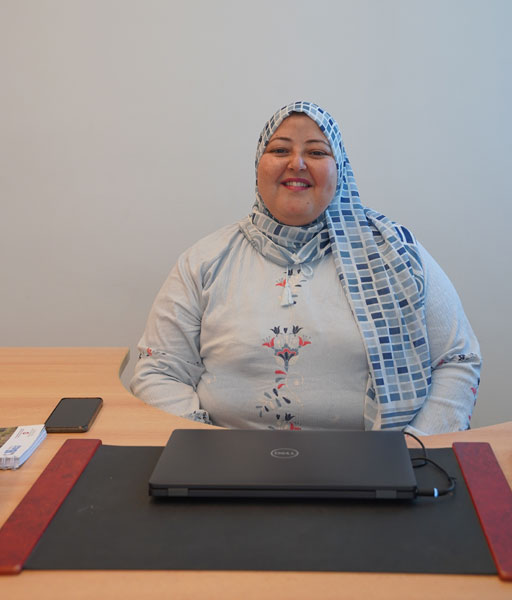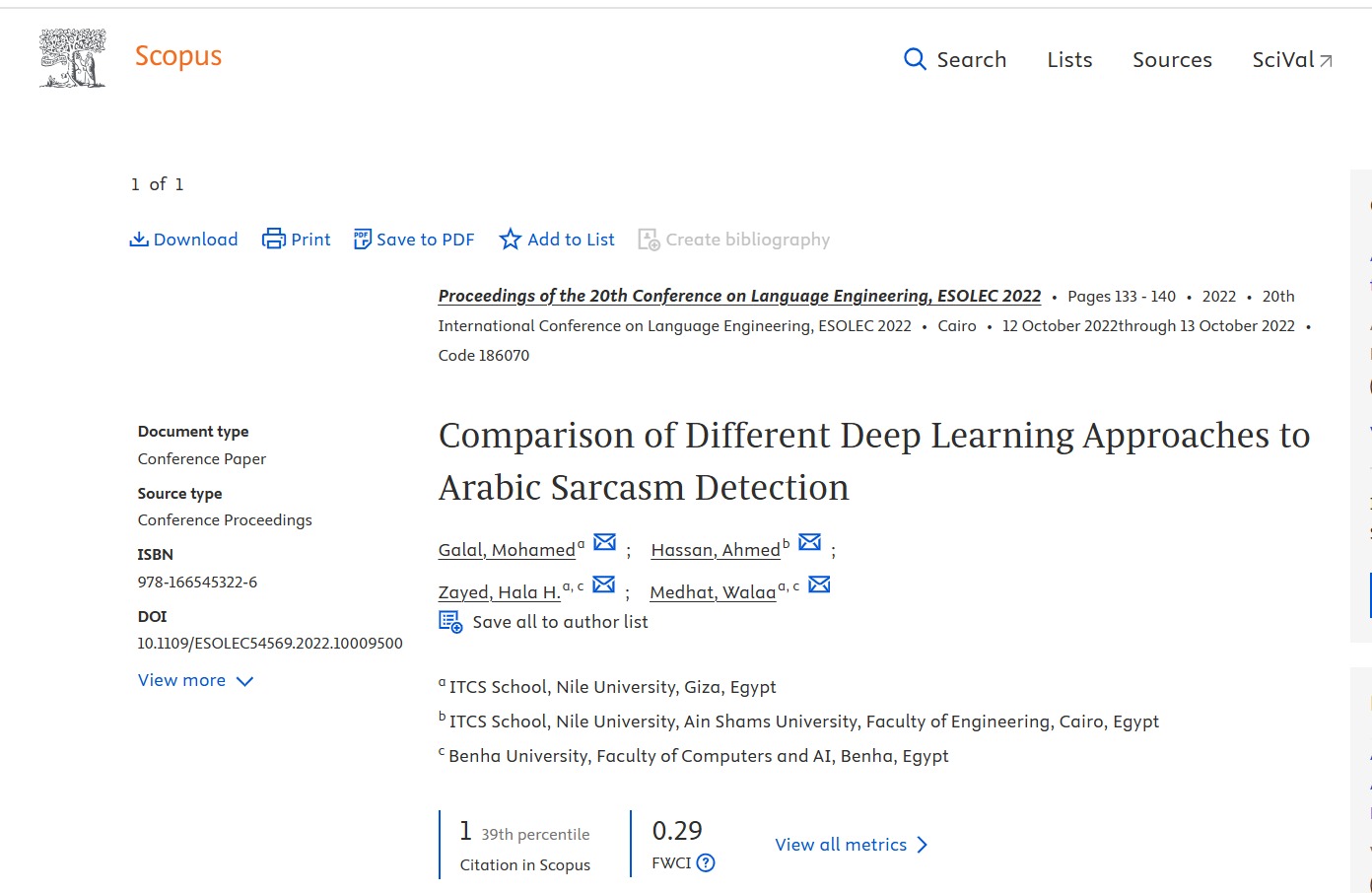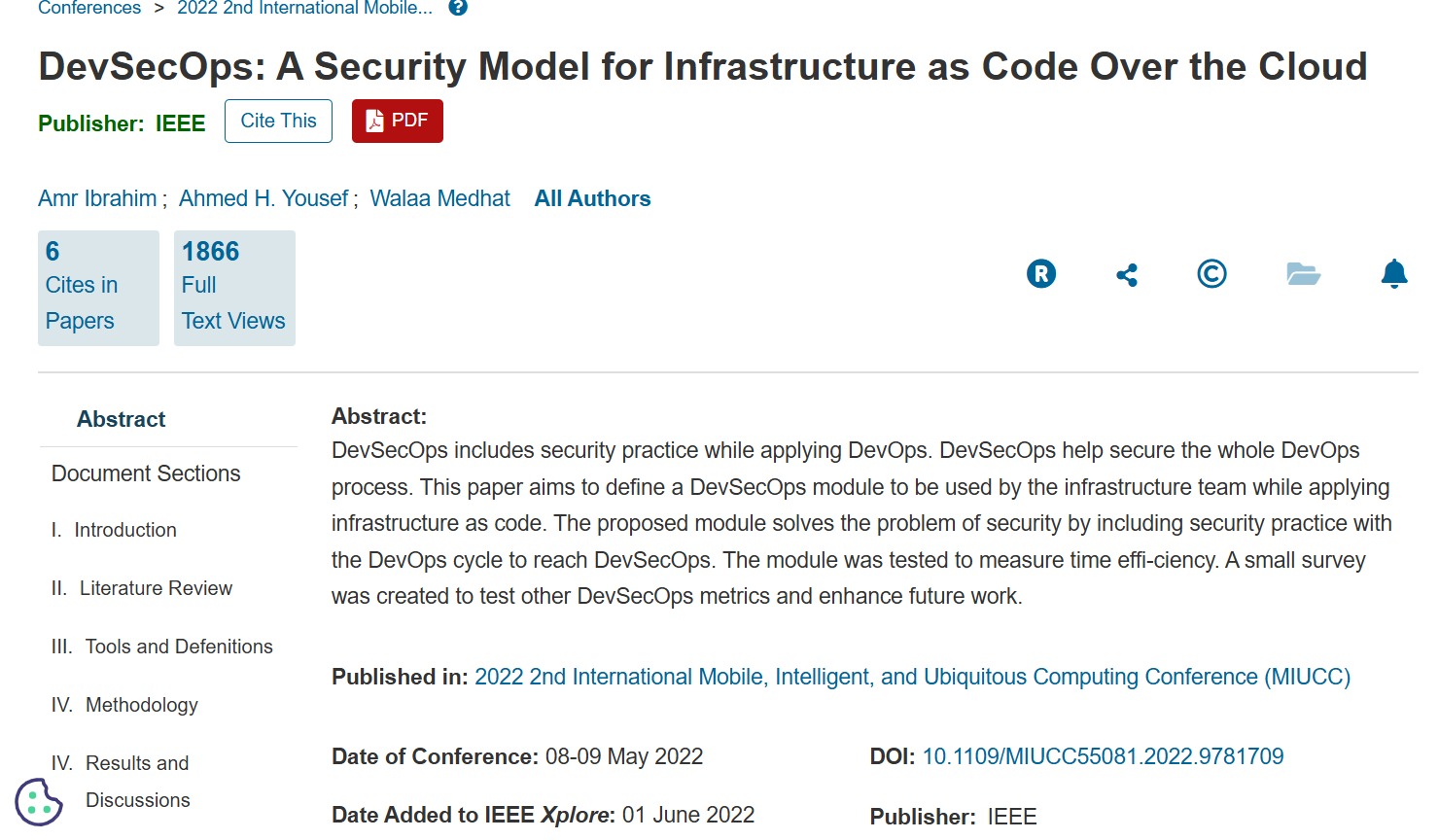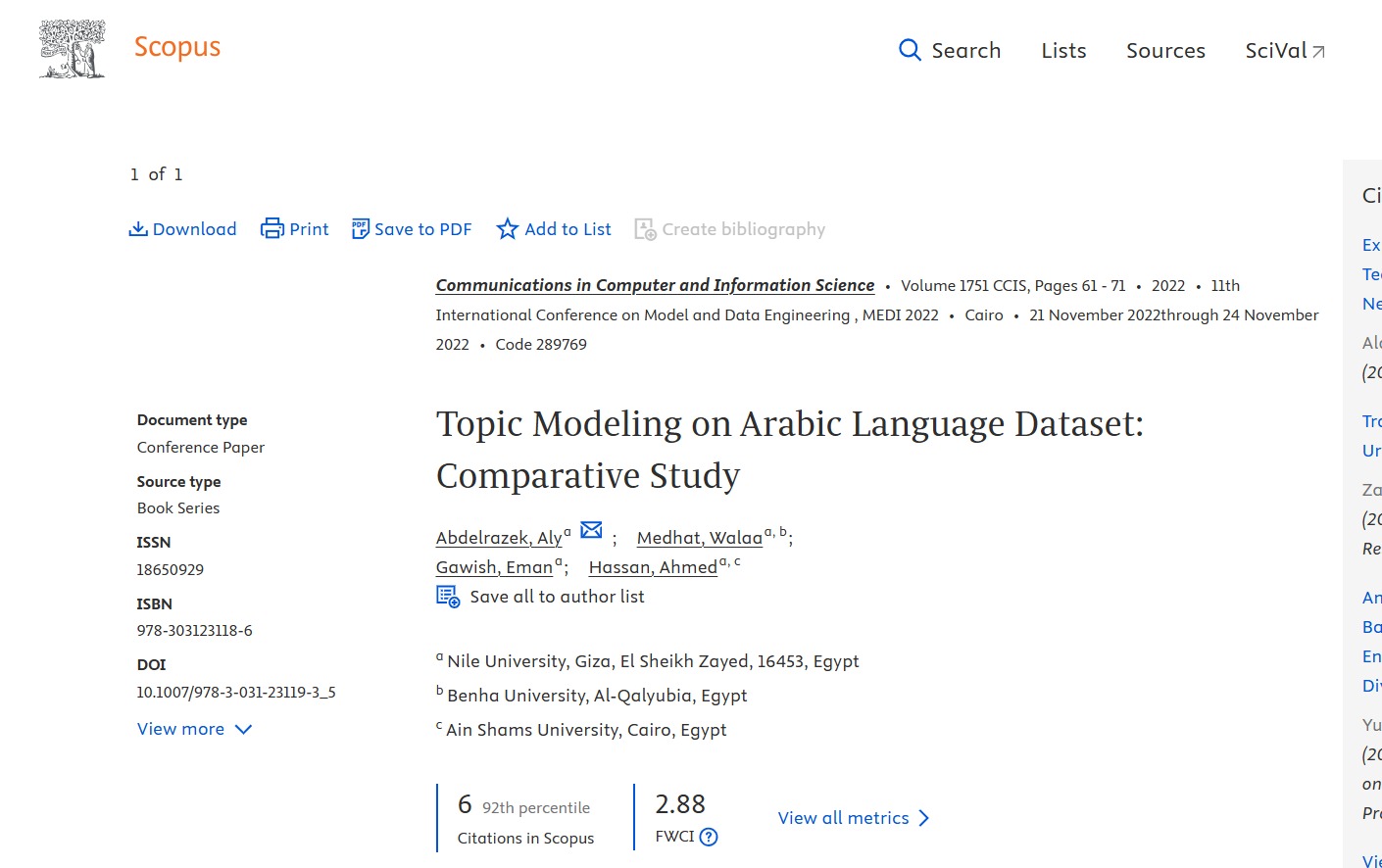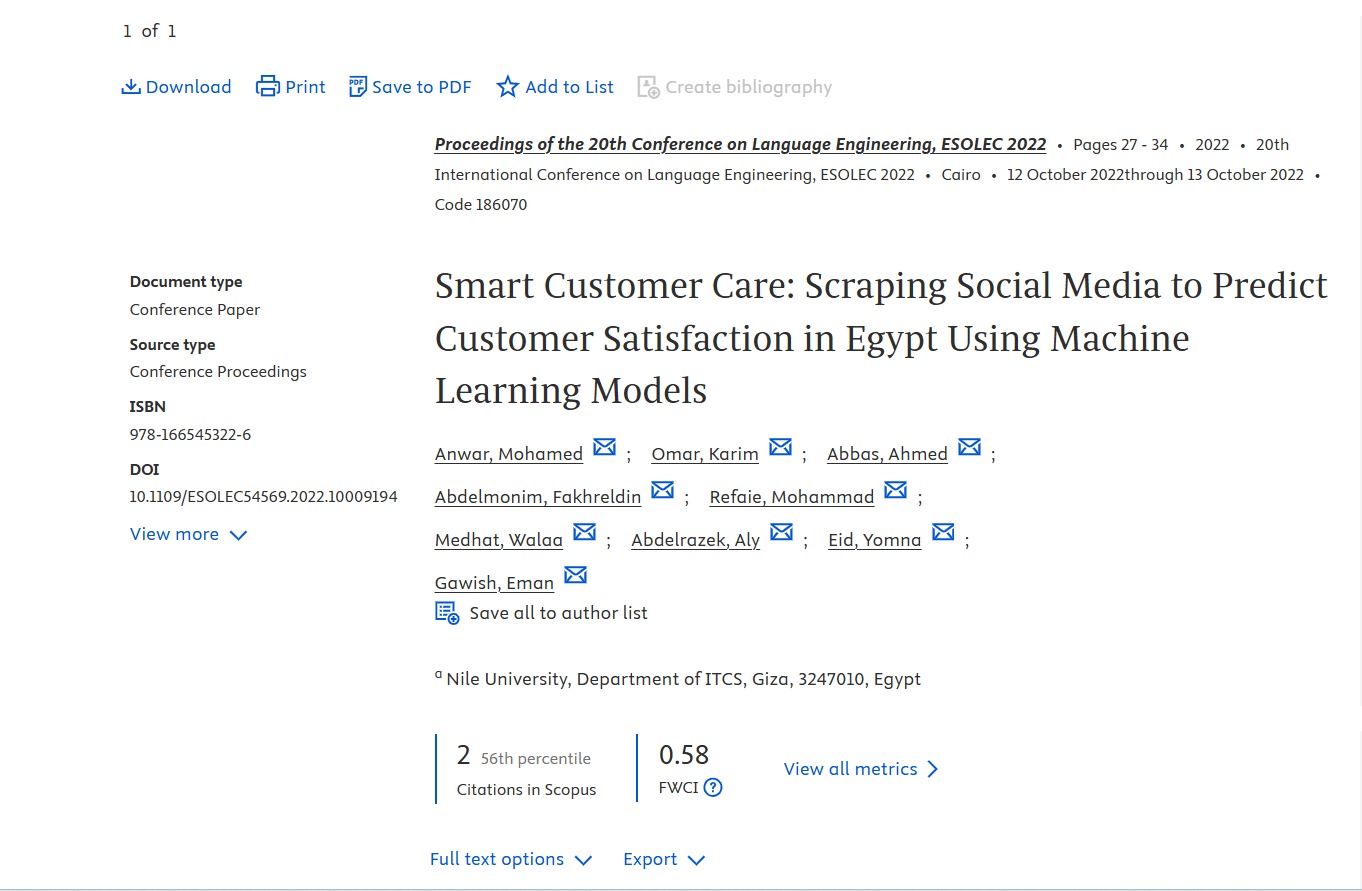Faculty Office Ext.
3044
Faculty Building
UB2
Office Number
F12
Biography
Program Director of Computer Science (CS) Walaa Medhat is an assistant professor at Nile University. Walaa Medhat is an associate professor at Nile University. She got her Ph.D., M.Sc., and BA degree in computer systems from faculty of engineering, Ain Shams University. She worked at the Faculty of Computers and Artificial Intelligence, Benha University. She was a consultant in MIS unit, the Supreme Council of Universities. She is an expert in Natural Language Processing, Data Mining and Software Engineering. She is a member in the Egyptian Society of Language Engineering.
Recent Publications
Pagination
Research Tracks
- Natural Language Processing (NLP)
- Data Mining
- Software Engineering
- Big Data Analytics
Projects

Research Project
AgriSem: Semantic Web Technologies for Agricultural Data Interoperability
Objective/Contributions: The amount and types of raw data generated within the agriculture domain are dramatically growing. However, these raw data in themselves are meaningless and isolated, and therefore may offer little value to the farmer. The Agricultural Research Center (ARC)and the Central Lab for Agricultural Expert Systems (CLAES) was established to enhance the productivity of knowledge

